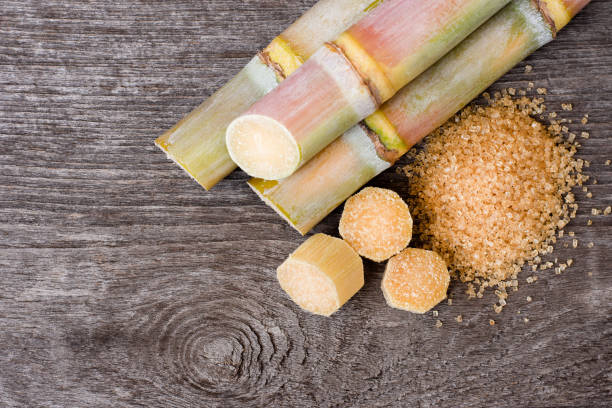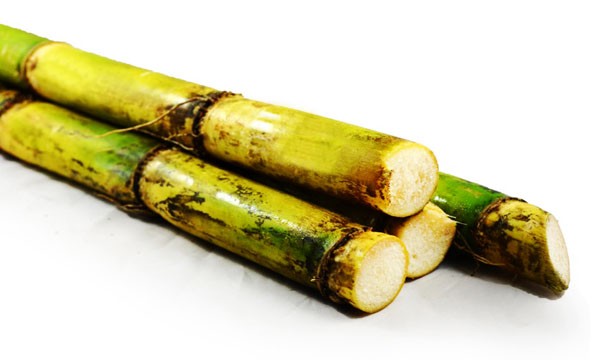Why Walking Cane Sugar Handling Chemicals Are Critical for Modern Sugar Refining
The role of cane sugar handling chemicals in modern-day sugar refining can not be overemphasized, as they are indispensable to boosting both the performance of extraction and the total top quality of the last item. Agents such as phosphoric acid and particular flocculants are employed to eliminate impurities, resulting in sugar that not only meets customer expectations but also adheres to sector criteria.
Role of Handling Chemicals
The effectiveness of walking cane sugar handling pivots significantly on the strategic application of processing chemicals. These chemicals play a pivotal function in boosting the performance and high quality of sugar removal and refining. From the preliminary stages of juice removal to the last purification actions, processing chemicals facilitate various important procedures.
In the removal stage, chemicals such as phosphoric acid and calcium hydroxide are utilized to maximize the information process, aiding to get rid of pollutants and suspended solids from the cane juice. This not only enhances the yield however also ensures the clearness of the end product. Furthermore, agents like flocculants help in the rapid settling of pollutants, thus simplifying the general procedure.
Activated carbon and ion exchange resins offer to get rid of color and smell, guaranteeing that the polished sugar fulfills customer quality criteria. Thus, the thorough choice and application of these chemicals are essential for attaining optimum outcomes in cane sugar processing.
Key Sorts Of Chemicals
Walking stick sugar processing relies on a variety of crucial chemicals that facilitate each phase of production. These chemicals play crucial roles in making clear, whitening, and detoxifying the sugar removed from walking stick.
One main group of chemicals includes flocculants, such as polyacrylamide, which aid in the clarification procedure by promoting the gathering and settling of contaminations. In addition, calcium hydroxide is usually used to reduce the effects of level of acidity and assist in the elimination of non-sugar components.
Bleaching agents, such as turned on carbon and sulfur dioxide, are utilized to decolorize the syrup, resulting in a more clear last item. These chemicals help remove shade compounds that may affect the sugar's look and marketability.
In addition, phosphoric acid functions as a pH regulator during the handling stages, making certain optimum problems for the enzymatic activities included in sugar extraction and filtration.
Various other essential representatives include edta (ethylenediaminetetraacetic acid), which chelates steel ions that could catalyze unwanted responses, and salt hydroxide, which assists in pH control throughout the refining procedure. Collectively, these chemicals enhance effectiveness and ensure a top notch walking cane sugar item.
Benefits for Sugar Top Quality
Usually overlooked, using particular processing chemicals significantly boosts the overall quality of walking cane sugar. These chemicals play a crucial duty in refining processes, ensuring that the last product satisfies rigid sector requirements for pureness and taste.

Furthermore, processing chemicals aid in achieving a regular granulation and texture, which are critical for customer acceptance. By regulating the condensation procedure, these chemicals ensure that the sugar crystals form uniformly, leading to an extra appealing product that liquifies well in numerous applications.
Moreover, making use of these chemicals can improve the service life of walking cane sugar by minimizing wetness absorption and microbial growth. Overall, the strategic application of handling chemicals is important for providing top notch walking cane sugar that meets customer expectations and sector demands.
Environmental Effect Factors To Consider

Additionally, the energy-intensive nature of sugar refining, intensified by chemical use, usually causes enhanced carbon discharges. This adds to climate modification and raises concerns pertaining to the sustainability of existing refining techniques. Furthermore, the sourcing of these chemicals may include methods that threaten biodiversity, such as monoculture farming, which minimizes the resilience of farming ecosystems.

To reduce these impacts, sugar refiners her explanation are progressively exploring lasting options and adopting best techniques that lessen chemical usage. Applying strenuous ecological management systems can aid ensure that the refining procedure aligns with ecological criteria and promotes biodiversity. Eventually, a balanced method that prioritizes both sugar high quality and environmental stewardship is necessary for the lasting practicality of the sugar industry.
Future Trends in Refining
As the sugar industry grapples with the ecological challenges connected with typical refining techniques, innovative approaches are arising to boost both efficiency and sustainability. One significant pattern is the adoption of eco-friendly chemistry concepts, which prioritize the usage of non-toxic, eco-friendly processing chemicals. This change not just minimizes environmental impact yet likewise addresses customer demand for cleaner production techniques.
One more encouraging development is the implementation of innovative purification modern technologies, such as membrane separation and adsorption processes. These methods enhance the clearness and high quality of the sugar while decreasing the quantity of wastewater produced during refining. In addition, the assimilation of digital modern technologies, consisting of IoT and AI, is changing functional effectiveness by making it possible for real-time surveillance and anticipating upkeep, hence decreasing source waste.
Additionally, making use of by-products from sugar refining, such as bagasse and molasses, is obtaining check this traction. These materials can be converted into biofuels or value-added items, adding to a circular economy within the industry. Collectively, these patterns indicate a change in the direction of more lasting practices that not only boost operational effectiveness however likewise line up with global sustainability goals, guaranteeing the future viability of sugar refining.
Final Thought
Walking stick sugar handling chemicals are necessary in modern-day sugar refining, significantly enhancing the efficiency and high quality of sugar removal. The tactical use these chemicals not only improves helpful resources the purity and flavor of the end product however likewise makes certain regular formation and appearance. As the sector increasingly prioritizes sustainability, the adoption of environmentally-friendly processing agents is most likely to shape future trends in refining, ultimately leading to greater top quality items and expanded service life for customers.

Eventually, a well balanced method that focuses on both sugar top quality and environmental stewardship is essential for the lasting feasibility of the sugar sector.
Cane sugar handling chemicals are important in modern sugar refining, considerably boosting the performance and quality of sugar extraction.